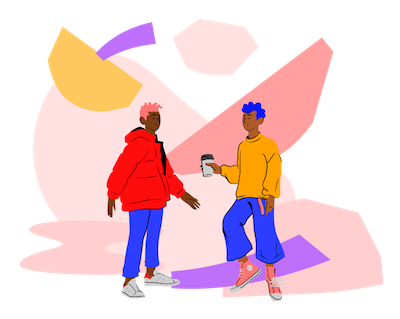|  | | | Bonjour, learning enthusiasts! Embark on an exciting journey with us as we unravel a captivating French proverb and some commonly used words in our everyday life! |
| |
| |
|
|
terre The word 'terre' is used in French to mean 'land'. It can be used in a variety of contexts, such as describing a piece of earth or ground (la terre), talking about a country or territory (la terre de mes ancêtres) or referencing the planet Earth itself (la Terre). This word is a common noun and always starts with a lowercase, except when it represents the Earth, or at the start of a sentence. Here's how to use it: Nous devons prendre soin de la terre. La terre est le troisième planète de notre système solaire. Il semble que la terre et le ciel se rencontrent à l'horizon.
| |
|
chat In French, 'chat' is used to refer to a cat. It is a common noun and can be used in various contexts. Just like in English, it can be used to identify the common household pet. It is also masculine, so when describing a cat, use male adjectives. Here's how to use it: Le chat est sur le tapis. Le chat n'aime pas l'eau. Le chat court après la souris.
| |
|
visage The translation of 'face' in French is 'visage.' It is used very similarly to its English counterpart by referring to the front part of a person’s head from the forehead to the chin. For example, 'Je vais me laver le visage' means 'I am going to wash my face.' It can also be used metaphorically to express aspects or phases, like in 'faire face à une situation' which means 'to face a situation.' Here's how to use it: Il a un visage sérieux quand il travaille. Je ne peux pas oublier son visage. Le soleil brille sur mon visage.
| |
|
leur In French, 'leur' is used as a possessive adjective, equivalent to 'their' in English. It is used to indicate that something belongs to them. For example, 'C'est leur maison' would mean 'That is their house'. Unlike some other possessive adjectives in French, 'leur' does not change according to gender or number of the object owned, there is only one form. Here's how to use it: | |
|
chaque The French word 'chaque' is used similarly to the English word 'every', describing a group of items individually. For example, in the sentence 'chaque jour est un nouveau défi' means 'every day is a new challenge'. It can be used with time, events, people, objects, etc, much like its English counterpart. Here's how to use it: Chaque jour est une nouvelle opportunité. Chaque fois que je le vois, il sourit. Chaque chapitre du livre est intéressant.
| |
|
🤔🤔🤔 Mieux vaut être seul que mal accompagné | |
|
| Never stop learning, Mike from LangBites PS 👉 Answer a 3 question survey to help me improve this service ☺️ | |
|
| You received this email because you signed up at LangBites.co. Click here to unsubscribe. |
| |
|
|
|

